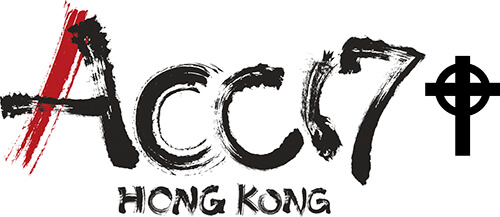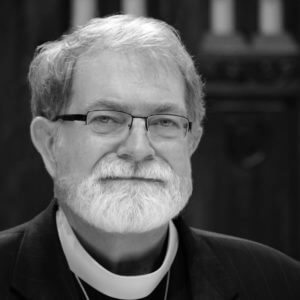I am writing today to respond to an article in the Church Times on March 15, 2019 in which the author contends that the Anglican Consultative Council (ACC) has become a “spurned instrument of Communion,” marginalized by all of the attention going to the Lambeth 2020 gathering of bishops. The article goes on to contend that the ACC is “the one place where women, lay people, and many others who are usually excluded from the counsels of the Communion can find a voice.”
Actually, the ACC has become a place where the voices of the Biblically faithful majority of Anglicans – women, lay people and many others – have been marginalized. Following the 15th meeting of the ACC in Auckland, New Zealand in 2012, representatives of the Church of Nigeria and Kenya had to write a separate statement precisely because their views were not reflected in the official Communique from ACC-15. In What really happened at ACC-15?, they reported on the failure of ACC-15 to address the crisis of false teaching within the Anglican Communion, the failure to engage the content of the proposed “Anglican Covenant” and the continued undermining of the clarity and authority of the Scriptures by exalting context over content in the new Bible in the life of the Church curriculum:
“2. At the same time, we are grieved that this meeting of the Anglican Consultative Council avoided the real crisis in the Anglican Communion. Since Lambeth Conference 1998, the ongoing conflict in our beloved Communion continues to be a crisis of Gospel truth, not only regarding matters of human sexuality but the authority of Holy Scripture as the Word of God written and the unique and universal Lordship of Jesus Christ the Son of God.
3. In the discussion on the proposed Anglican Covenant, we avoided the serious issues pertaining to discipline in the Church. Instead, we were asked to discuss our feelings about the Covenant-“Why is it a sign of fear for some and a sign of hope for others?” We already have four Instruments of Anglican Communion: the Archbishop of Canterbury, the Primates meetings, the Lambeth Conference of Bishops, and the ACC. If our identity, faith and order as Anglicans cannot be maintained by these Instruments, the Covenant will not solve our problems….
6. While there were many reports and resolutions at ACC-15, we wish to highlight our concerns over the report and the resolution on “The Bible in the Life of the Church” project. There is much to commend in this report on the central role the Holy Scriptures play in the life of Anglicans everywhere…However, we are seriously concerned that the context in which people interpret the Bible is considered as important as what the Bible actually says.
7. In our reflection groups, we heard Anglicans from the west say that this conclusion requires us to honour any interpretation of the Bible-since every context from which the Scriptures are read is to be honoured. We reject this assertion and the claim that there are no justifiable limits in interpreting and applying God’s word. The Bible stands over context, not the context over the Bible. God’s Word changes us-we do not change God’s Word…
8. We close with an observation from the Right Rev. Michael Nazir-Ali on the limits of biblical interpretation: “We cannot, because of a process of inculturation, produce forms of the Christian faith that are entirely opaque to Christians elsewhere.” We are grieved that the Anglican Consultative Council continues to tolerate, and even honour, The Episcopal Church USA, the Anglican Church of Canada and other provinces who continue to produce revisionist forms of the Christian faith that are unrecognizable to the majority of Anglicans worldwide, contrary to a plain reading of God’s Word and in violation of Anglican Faith and Order.”
I quote at length from this statement because its authors are among the majority of Anglicans in the world today who are from the Global South. As an eyewitness observer of the verbal reports from the ACC-15 reflection groups, I can certainly affirm the “agenda” from the West that was funding and driving the official reports. One of the delegates from Kenya reported to me how difficult it was to have the Western “note takers” include their comments in the official minutes of their group. As I have written recently regarding the Strategic Plan for the Anglican Communion, published by the Anglican Communion Office, such funding from the West continues to drive and shape the agenda of all of the Instruments, including the Anglican Consultative Council. What Really Happened at ACC-15? also helps us understand the train wreck that happened four years later at ACC-16 (2016) in Lusaka, Zambia.
At the January, 2016 meeting of the Primates of the Anglican Communion, the Primates said The Episcopal Church (TEC) would not be permitted to participate in ecumenical conversations or any decisions on the doctrine or polity of the Anglican Communion. This consequence was declared by the Primates because TEC had made decisions that unilaterally violate the teaching of the Anglican Communion. Therefore, the Primates reasoned, TEC shouldn’t be allowed to represent Anglicans anywhere.
Less than four months later the Anglican Consultative Council (ACC-16) met in Zambia on April 8-19, and “received” the report of the Primates. In fact, they ignored it. The Episcopal Church participated in every vote on every resolution that came before ACC-16, including every matter relating to the doctrine and polity of the Anglican Communion. You can read the facts in detail here. A spokesperson on behalf of Episcopal Church Communications reported that the ACC deliberately refused to implement the recommendations of the Primates. Even the delegates from TEC to ACC-16 publicly refuted Archbishop Welby’s claim that ACC-16 had honored the decision of the January 2016 Primates meeting and admitted to doing whatever they pleased during the meeting!
The refusal by the Anglican Consultative Council to implement the recommendations of the January 2016 Primates meeting is prima facie evidence that the Instruments of Communion are at odds with each other – broken systemically, and unable to reach the “conciliar consensus” that has characterized Anglican decision making at every other level of Anglican Churches other than this global, Communion level of governance. In fact, the Anglican Consultative Council is a major part of the problem, and not the solution.
The Anglican way of decision making is conciliar, and finds it roots all the way back to the Jerusalem Council in Acts 15. Yes, in conciliar decision making every voice in the church must be heard – not only Bishops and clergy, but laity, male and female, theologians and more. But the place for this to happen is in a Synod where all voices come together in the decision making, and where Bishops exercise a unique role in guarding the faith and order, doctrine and discipline of the Church.
The Anglican Consultative Council is NOT such a Synod. According to its own Constitution[1], the Anglican Consultative Council has power only to assist Primates and the Lambeth Conference of Bishops “as and when required to do so.” (Art. 5.12) That is not the language of a Synod. It is the language of a subordinate and advisory body that serves the bishops rather than contradicting and usurping their authority. This becomes even clearer in the language of Article 5 where the ACC is referred to multiple times as an “advisory body” only: with power “to advise on inter-Anglican, Provincial and Diocesan relationships” (Art. 5.3 at page 4), power “to advise on matters arising out of national or regional Church union negotiations,” (Art. 5.8, at page 5) and power “to advise on problems of inter-Anglican communication.” (Art. 5.9, at page 5). The powers enumerated to the ACC in the rest of Article 5 are what we would expect for the Board of Trustees of a charitable organization—in language that facilitates the exercise of their fiduciary duties.
But here’s the rub: The Anglican Communion is more than a charitable organization under the UK Charities Act. It is a Church – led by Bishops who have an ancient, conciliar responsibility to guard the doctrine, discipline and order of the Churches they lead, and Primates to guard the faith and Godly order in the relationships among those Churches. This authority is recognized not only in the Resolutions of the Lambeth Conference but also in The Principles of Canon Law Common to the Churches of the Anglican Communion. One hardly knows how to characterize the repudiation of the Primates gathering by the ACC – arrogance, rebellion or legal fiction, it’s all the same.
As I contend in Anglican Conciliarism, this is the heart of the “ecclesial deficit,” the inability of the existing global structures of the Anglican Communion to say “no” to false teaching or any other violation of faith and order. There was some hope that the proposed Anglican Communion Covenant would provide a means for addressing this deficit. But those hopes were dashed at the 2009 meeting of the Anglican Consultative Council in Kingston, Jamaica. The section of the proposed Covenant on discipline and conflict resolution was initially approved, then undone by delegates from Anglican Churches in the West, with the help of then Archbishop of Canterbury Rowan Williams himself! The section on discipline was sent back for further study, amended, and ultimately placed discipline in the hands of an even smaller and less representative body elected from the Anglican Consultative Council, the “Standing Committee of the Anglican Communion.” As of this date the Covenant is dead in the water. Even with all of these changes it could not pass provincial approval by the Mother Church of the Anglican Communion.
But the legacy of the Anglican Consultative Council lives on. In Conciliarism: A History of Decision-Making in the Church , Paul Valliere describes it well:
“One may wonder also whether many Anglicans will warm to the Standing Committee of the Anglican Communion even if it succeeds in establishing itself as the arbiter of their fellowship. Is a committee the optimal institutional embodiment of catholic concordance? In 1867 global Anglicanism created a conference; in the twentieth century, consultative instruments; in the first decade of the twenty-first century a covenant; now a committee. Is there any ecclesial logic, not to speak of ecclesial poetry, in this progression?”[2]
For all these reasons, the Anglican Consultative Council is the last place we should look to recover the Anglican conciliar way of decision making.
[1] The Constitution of the Anglican Consultative Council a.k.a. The Articles of Association of the Anglican Consultative Council by Certificate of Incorporation of a Limited Company, No. 7311767, (incorporated 12 July 2010) under the UK Companies Act 2006,
[2] P. Valliere, Conciliarism: A History of Decision-Making in The Church (Cambridge: Cambridge University Press, 2012) at p. 234.
Canon Phil Ashey is the President and CEO of the American Anglican Council



